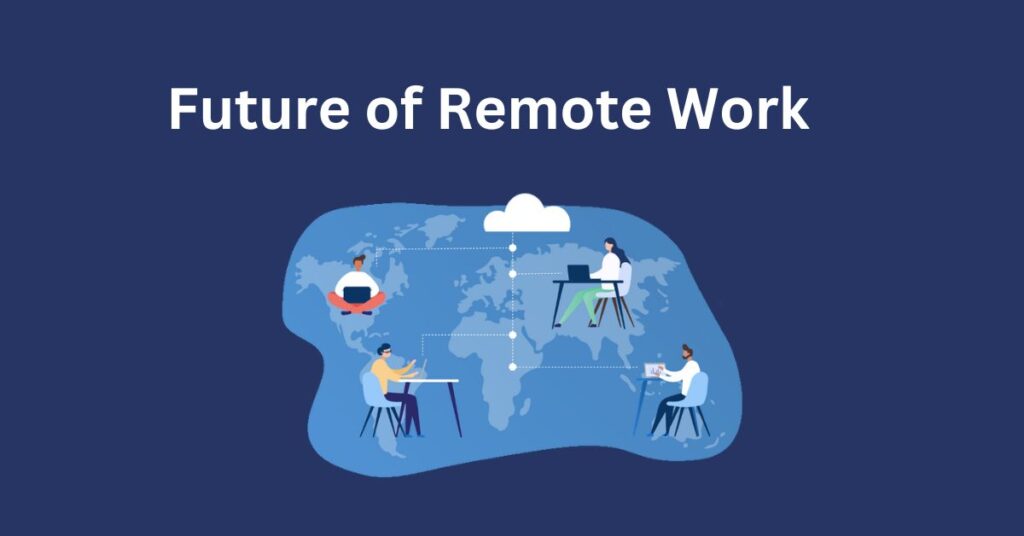The Future of Remote Work: Tools and Technologies Shaping the Modern Workplace – How Innovations like Paystub Generators are Revolutionizing Remote Employee Management, This article delves into the technological advancements fueling the remote work revolution, with a special focus on tools like paystub generators. It explores how these innovations are not only facilitating but also shaping the future of work, particularly in a digitally-driven era.
Table of Contents
Introduction:
The landscape of work has undergone a seismic shift in recent years, with remote work transitioning from a fringe benefit to a standard mode of operation for many businesses. This change has been largely enabled by technological advancements that allow employees to work effectively from anywhere. From collaborative platforms to sophisticated payroll tools like paystub generators, technology is at the heart of this transformation. In a world where remote work is not just a trend but a mainstay, understanding these tools and technologies is crucial. This article, in the vein of TechJustify’s in-depth technology focus, examines the pivotal role of tools like paystub generators in the remote work ecosystem.
Section 1: The Rise of Remote Work: A Technology-Driven Evolution
The Historical Context of Remote Work
Remote work, once a rare perk offered by a few forward-thinking companies, has rapidly evolved into a mainstream working model. This transition didn’t happen overnight; it was the result of a gradual shift influenced by several factors over the years. Initially, remote work was limited to certain industries or roles and often seen as less productive or serious than traditional office work. However, as technology advanced, so did the perception and feasibility of working remotely.
Technological Enablers of Remote Work
The real catalyst for the explosion of remote work has been technology. High-speed internet is perhaps the most fundamental enabler, allowing employees to connect to their offices from anywhere in the world. Other significant technological advancements include:
1. Cloud Computing: The adoption of cloud services has been a game-changer, allowing for real-time collaboration, data sharing, and access to company resources remotely. And if you need application streaming to deliver software efficiently without full local installation, there are solutions designed to make this process seamless and secure.
2. Communication Tools: Platforms like Slack, Zoom, and Microsoft Teams have bridged the communication gap, making it easier for teams to stay connected and collaborate effectively.
3. Project Management Software: Tools like Asana, Trello, and Monday.com have helped remote teams stay organized, track progress, and maintain productivity.
4. Cybersecurity Solutions: With the increase in remote work, there’s been a corresponding need for robust cybersecurity solutions to protect data and communications.
Statistics and Trends in Remote Work
The data around remote work speaks volumes about its growing prevalence. A significant percentage of the workforce now works remotely at least part-time. Many companies, particularly in the tech sector, have adopted a fully remote or hybrid model. The trend isn’t just limited to certain industries or countries; it’s a global phenomenon. Surveys and studies consistently show high levels of employee satisfaction with remote work, citing flexibility and work-life balance as key benefits.
The Emergence of Paystub Generators
In this evolving landscape, financial management tools, specifically paystub generators, have become crucial. Paystub generators facilitate seamless financial transactions and record-keeping for remote employees, simplifying what could otherwise be a complex process. This tool’s significance will be explored in greater detail in the next section, highlighting its role in streamlining remote work operations.
Section 2: Paystub Generators: A Key Tool in Remote Work Management
Understanding Paystub Generators
In the realm of remote work, the management of payroll and financial records takes on a new level of complexity. This is where paystub generators come into play. A paystub generator is an online tool that creates pay stubs, which are documents provided to employees as a record of their earnings, deductions, and taxes for a specific pay period. These tools are designed to be user-friendly, ensuring that even those without a background in accounting can easily generate accurate and professional pay stubs.
Why Paystub Generators are Essential for Remote Work
1. Simplifying Payroll Management: Paystub generators automate the process of calculating and recording employee payments, which is particularly beneficial for businesses with remote teams spread across different regions or countries.
2. Ensuring Accuracy and Compliance: These tools are updated with the latest tax rates and deductions, helping businesses stay compliant with various regional laws and regulations.
3. Enhancing Transparency and Trust: By providing clear and detailed pay stubs, employers can foster transparency and trust among remote employees, who often rely on digital records for their financial planning.
Case Studies: Effective Use in Remote Work Settings
– Example 1: A tech startup with a fully remote team utilizes a paystub generator to manage its international workforce’s payroll. The tool’s ability to handle different currencies and tax regulations simplifies the payroll process and reduces errors.
– Example 2: A freelance platform integrates a paystub generator for its users, allowing freelancers and clients to effortlessly manage and document payments, fostering a sense of professionalism and reliability in the remote work environment.
The Broader Impact of Paystub Generators
Beyond individual companies, paystub generators are influencing the broader landscape of remote work by setting standards for financial documentation and management. They are not just tools for efficiency; they represent a shift towards a more streamlined, transparent, and compliant approach to managing remote teams.
Section 3: Integrating Paystub Generators with Other Remote Work Technologies
Seamless Integration with Project Management and Collaboration Tools
One of the key strengths of paystub generators in the context of remote work is their ability to integrate with other digital tools. This integration creates a more streamlined and efficient workflow. For example, integrating a paystub generator with project management software can allow for automatic tracking of hours worked, which can then be directly used for payroll processing. This seamless connection reduces administrative overhead and minimizes errors in recording work hours and calculating pay.
Automating Payroll and HR Processes in a Remote Setting
The automation capabilities of paystub generators extend beyond creating paystubs. They can be linked with HR systems to automate various aspects of employee management, such as tracking leave balances, calculating bonuses, and managing employee benefits. This automation is particularly beneficial in a remote work environment, where traditional, in-person HR processes are not feasible.
Enhancing Data Security and Compliance
In a remote work setup, data security and compliance are paramount. Paystub generators often come with built-in security features to protect sensitive financial information. They also help companies stay compliant with tax laws and employment regulations, which can be challenging when managing a geographically dispersed workforce. By ensuring that payroll practices adhere to relevant laws and protecting employee data, paystub generators play a crucial role in mitigating risk for remote-working businesses.
Case Studies: Integration in Action
– Case Study 1: A global marketing firm integrates its paystub generator with its creating a unified platform for managing client projects, employee hours, and payroll. This integration has resulted in significant time savings and reduced errors.
– Case Study 2: An e-commerce company uses a paystub generator that automatically updates with changes in tax legislation, ensuring that their remote workforce across different states is always paid in compliance with local laws.
Section 4: The Future of Remote Work Technologies
Predictions for Future Remote Work Technologies
As we look towards the future, remote work and emerging technologies are expected to evolve and become even more sophisticated. Emerging technologies like artificial intelligence (AI), machine learning, and blockchain are likely to play a significant role. AI and machine learning could be used to further automate tasks and provide analytical insights, while blockchain might enhance security and transparency in remote work operations. Additionally, we may see the rise of virtual reality (VR) and augmented reality (AR) in creating more immersive and interactive remote working environments.
The Evolving Role of Paystub Generators
Paystub generators are expected to evolve alongside these technological advancements. Future iterations may offer more advanced features, such as:
1. AI-Powered Analytics: Using AI to provide insights into payroll data, helping businesses optimize their spending and manage their workforce more effectively.
2. Enhanced Customization and Flexibility: As businesses become more diverse in their operations and workforce, paystub generators will need to offer more customization to accommodate various payment structures and benefits packages.
3. Integration with Emerging Technologies: We can expect deeper integrations with other cutting-edge technologies, enhancing the overall efficiency and capability of remote work management systems.
Challenges and Opportunities
While the future of remote work technologies is bright, it is not without challenges. Issues such as ensuring data privacy, managing a distributed workforce, and maintaining company culture remotely will need to be addressed. However, these challenges also present opportunities for innovation in remote work technologies. Companies that can successfully navigate these challenges and leverage new technologies will be well-positioned to thrive in the evolving landscape of work.
Preparing for the Future
To prepare for this future, businesses should stay informed about emerging technologies and trends in remote work. Investing in training and development for their workforce to adapt to new tools and technologies will be key. Moreover, companies should focus on building a flexible and adaptable IT infrastructure that can easily integrate with future technological advancements.
Conclusion: Embracing the Future of Remote Work with Advanced Technologies
The transition to remote work, significantly accelerated by technological advancements, has reshaped the landscape of employment and business operations. Tools like paystub generators have emerged not just as facilitators but as essential components in this new work environment. They exemplify how technology can solve specific challenges inherent in managing a remote workforce, particularly in financial and administrative aspects.
As we have explored in this article, the integration of paystub generators with other remote work technologies creates a more cohesive, efficient, and secure working environment. This integration is crucial for managing the complexities of a geographically dispersed workforce and ensuring compliance with various regional regulations.
Looking forward, the evolution of remote work technologies, including paystub generators, is poised to continue. With the potential integration of AI, machine learning, and blockchain, these tools will likely become more intelligent, flexible, and secure. They will play a critical role in adapting to the changing needs of businesses and employees in a remote work setting.
However, embracing these technologies comes with its own set of challenges. Businesses must be proactive in staying abreast of technological advancements, ensuring data security, and fostering a company culture that embraces remote work. Investing in training and development, and building a flexible IT infrastructure will be key to navigating these challenges successfully.
In conclusion, as remote work becomes increasingly prevalent, the role of technology in facilitating and enhancing this mode of work cannot be overstated. Tools like paystub generators are at the forefront of this transformation, playing a pivotal role in ensuring that remote work is not just a temporary trend, but a sustainable, efficient, and rewarding way of working for the future. Businesses that recognize and adapt to these technological advancements will be best positioned to thrive in the evolving landscape of work.

Lokesh Sharma is a digital marketer and SEO expert at TechJustify with a keen interest in emerging technology trends including AI, cybersecurity, and digital marketing tools for more than 5 years. He writes clear, actionable articles for tech enthusiasts and business leaders, simplifying complex topics like VPNs, automation, and generative AI.


